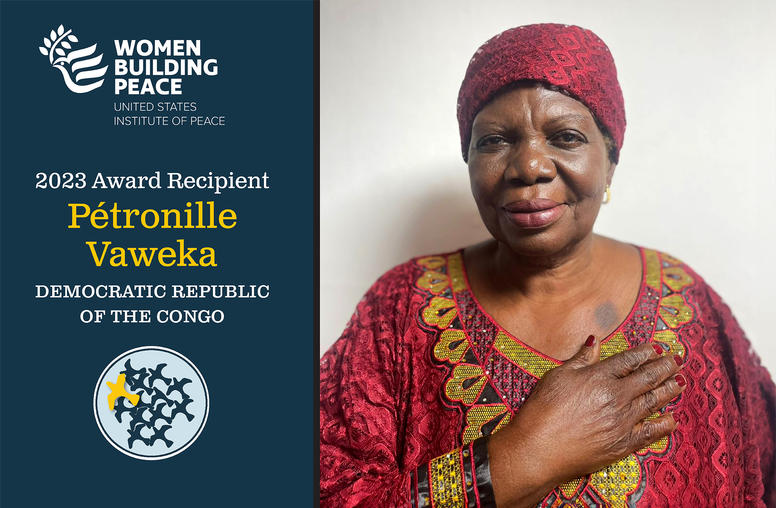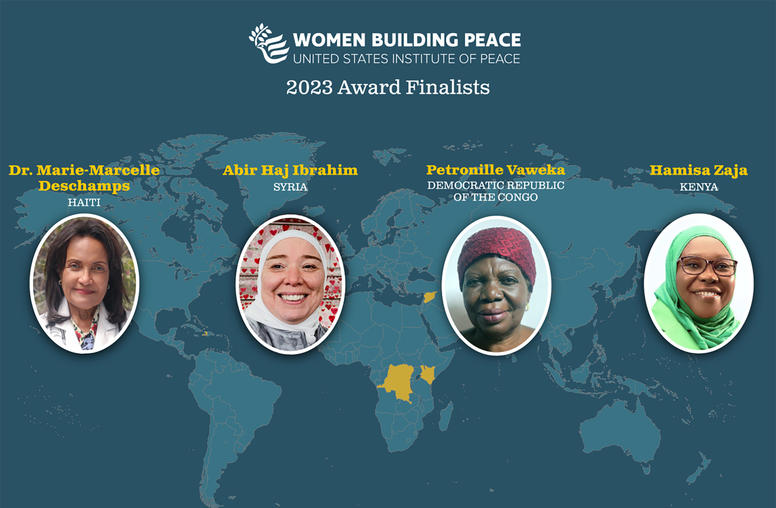Middle East Meltdown
Institute experts available for analysis and commentary on recent developments on the Middle East peace process.
What can be done to end the current outbreak of violence consuming the Middle East? How far should the U.S. go to help bring peace to the Middle East? Can Barak and Arafat even sell a workable peace agreement to their domestic constituencies? Can the conflict be contained or will the crisis draw in Lebanon, Syria, and others? Middle East specialists Jon Alterman, Judy Barsalou, Theodore Feifer, Jeff Helsing, and Steven Riskin are available for questions, commentary, and analysis in examining the stakes for Arafat and Barak and the ongoing prospects for peace in the Middle East.
Jon B. Alterman is a program officer in the United States Institute of Peace's Research and Studies Program, focusing on issues relating to the Middle East, cross-cultural negotiation, political violence and the effects of the new media on diplomacy. Before joining the Institute, Alterman was a Soref Fellow at the Washington Institute for Near East Policy. He has also worked as a legislative aide to Sen. Daniel P. Moynihan (D-NY) covering foreign policy, defense, and intelligence, and in the U.S. Department of State's Bureau of Human Rights and Humanitarian Affairs covering Middle East issues.
Judy Barsalou joined the Institute in July 2000 as the director of the Grant Program. Previously a program officer at the Jerusalem Fund, Center for Policy Analysis on Palestine, Barsalou has over two decades of experience working on and researching Middle East issues. From 1996-99, she served as executive director of the Middle East Research and Information Project, which publishes Middle East Report. From 1982-90, Barsalou served as a program officer with the Ford Foundation, first in its New York headquarters and then in its Cairo office, where she developed, monitored, and evaluated grants supporting research, training, and institutional development in international relations, human rights, economics, governance, and public policy. She also founded and managed the foundation's Middle East Research Competition (MERC), a regional social science competition designed to provide research funding to non--Western trained scholars.
Theodore Feifer is a program officer in the Institute's Training Program. Feifer joined the Institute following a twenty-six year career in the Foreign Service. A specialist in the Arab-Israeli peace process, he served for two assignments at the American Embassy in Tel Aviv and most recently as an Advisor to the Special Middle East Coordinator. He participated in the Egypt-Israel Peace Treaty and Autonomy negotiations, Israel-Palestinian bilateral talks, and in the Middle East Multilateral working groups. Feifer helped establish the Israel-Lebanon Monitoring Group and served as Deputy Head of the U.S. Delegation during 1996-97. As Officer in Charge of Cyprus in the State Department during 1985-87, he was involved in the search for a Cyprus peace settlement. Feifer has also taught at the Armed Forces Staff College, focusing on the interagency process and the role of the military in peace operations.
Jeff W. Helsing is program officer for the Institute's Education Program, focusing on high school, college, and university education in international relations, conflict resolution, and peace studies. He a specialist on U.S. foreign policy towards the Middle East and has ten years of experience as an educator, having served as assistant professor at the American University in Cairo, Swarthmore College, and the University of Pennsylvania. Helsing is the author of several conference papers and publications, including a forthcoming article on U.S. foreign policy in the Middle East.
Neil Hicks is a senior fellow in the Institute's Jennings Randolph fellowship program and senior program coordinator for the Middle East and North Africa with the Lawyer's Committee for Human Rights (LCHR). As senior program coordinator, he devises and implements programs to promote respect for international human rights standards in the Middle East and North Africa, interacts with human rights advocates from the region, and promotes human rights issues with U.S. and regional governments. He also has served as director of the LCHR's Turkey program and its Political Islam and Human Rights Project. With over ten years of experience in the human rights field, Hicks has worked as a researcher for the international secretariat of Amnesty International and as a human rights project officer at Birzeit University in the West Bank. He has written and edited reports on the persecution of human rights advocates in Turkey, women's and minority rights in the Middle East and North Africa, and Islam and human rights.
Steven Riskin is a Middle East specialist in the Institute's Grant Program. He came to the Institute from the Ford Foundation's Africa and Middle East Programs, where he was a New York-based program officer and consultant for the Middle East. He was responsible for program development and grantmaking in Israel, designing and implementing programs in the areas of human rights, social justice, and conflict resolution. Riskin has been a consultant to the Robert F. Kennedy Memorial Center for Human Rights and several foundations seeking to advance social justice and peace in the Middle East.
The United States Institute of Peace is an independent organization created and funded by Congress to promote research, education, and training on the resolution of international conflicts.

